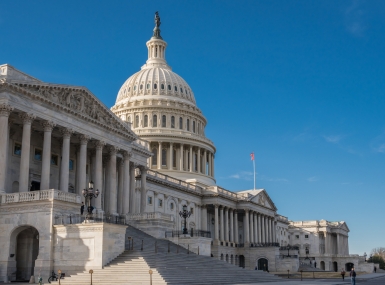Opioid task force to hold Virtual Town Halls in June
Upcoming Events
Related News

Virtual Town Halls will tackle opioid abuse and counties' responses 2 p.m. Thursdays in June
NACo will hold a number of events related to its joint task force with the National League of Cities on the opioid crisis that has affected communities across the U.S.
In June, a series of Virtual Town Halls will bring together the task force’s county appointees, NACo members and national experts on opioid and heroin abuse.
At NACo’s Annual Conference in July, the task force will brief conference attendees on its discussions and hear from the membership on the impact of the opioid crisis on local communities. Based on these events and conversations — and the next meeting of the full task force, in Boone County, Ky. in August — NACo and NLC will jointly release a report featuring policy recommendations and best practices in October.
Each of the Virtual Town Hall call-ins, scheduled in June on Thursdays at 2 p.m. EDT, will target an aspect of local response to the opioid crisis. The first call, June 9, will focus on prevention and education measures that local governments can take to lower the rates of drug use in their communities. Representatives of affiliate organizations such as the National Association of County and City Health Officials (NACCHO) and the National Association of County Behavioral Health and Developmental Disability Directors will join NACo members to discuss effective prevention strategies.
The second Virtual Town Hall, June 16, will focus on the treatment of individuals struggling with opioid addiction. Leading the discussion will be representatives from the American Medical Association and the Substance Abuse and Mental Health Administration. The discussion will cover Medication-Assisted Treatment facilities and the role that counties play in enabling — or discouraging — the establishment of these facilities in their jurisdictions.
The final Virtual Town Hall, scheduled for June 30, will cover public safety and community wellness. Many local law enforcement departments across the country have reassessed their approach to the enforcement of laws related to the use of heroin, but skepticism remains in regards to the effectiveness of this hands-off approach. Representatives from the National District Attorneys Association and Major County Sheriffs’ Association will join to discuss public safety issues relating to the opioid crisis.
You can register for these Virtual Town Halls by visiting www.naco.org/OpioidTownHalls.
Annual Conference Events
Later this summer, NACo will continue these conversations on the opioid crisis at the NACo Annual Conference in Los Angeles County (Long Beach), Calif. A luncheon, scheduled for July 22 will feature remarks from task force members and a series of presentations from NACo partners involved in efforts to curb the opioid crisis. U.S. Communities, for example, will share information on Narcan — an overdose-reversal medication widely considered key to reducing rates of death related to opioid and heroin use.
Due to limited capacity, you must RSVP to attend this session, and can do so by visiting www.naco.org/events/luncheon-opioid-epidemic.
Task Force Meeting
The Task Force will continue its work at a meeting in Boone County, Ky. on Aug. 19 and 20. It will begin to work towards finalizing a task force report to be published in October. The report will feature policy recommendations to local, state and federal leaders as well as examples of practices that have proven effective at decreasing rates of drug use and abuse.
Attachments
Related News

U.S. Congress begins work on budget reconciliation process: What this means for counties
The House and Senate Budget Committees have marked up Fiscal Year (FY) 2025 budget resolutions to initiate the budget reconciliation process to enact policy priorities without garnering bipartisan support, although the two chambers differ in their approach to drafting the legislation.
Panel: People in crisis need support, not handcuffs
Counties can better serve people experiencing a behavioral health crisis by engaging behavioral health specialists instead of law enforcement, experts told county officials at a recent meeting held at NACo headquarters.

Lawmakers reintroduce the Build Housing with Care Act
On January 30, Senator Ron Wyden and Congresswoman Bonamici reintroduced the Build Housing with Care Act. This legislation would establish a new competitive grant program under HUD intended to boost the supply of co-located child care facilities and affordable housing developments.